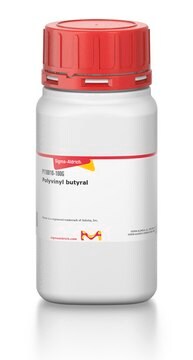About This Item
99.0-103.0% (ACS specification)
powder, crystals or granules
Recommended Products
grade
ACS reagent
Quality Level
Assay
99%
99.0-103.0% (ACS specification)
form
flakes
powder, crystals or granules
impurities
≤0.005% insolubles
pH
5.0-7.0 (25 °C, 5%)
mp
44 °C (dec.) (lit.)
density
1.86 g/mL at 25 °C
anion traces
chloride (Cl-): ≤0.005%
nitrite (NO2-): ≤0.001%
sulfate (SO42-): ≤0.002%
cation traces
Ba: ≤0.005%
Fe: ≤5 ppm
K: ≤0.005%
Mg: ≤0.05%
Na: ≤0.01%
Sr: ≤0.05%
heavy metals: ≤5 ppm (by ICP-OES)
SMILES string
O.O.O.O.[Ca++].[O-][N+]([O-])=O.[O-][N+]([O-])=O
InChI
1S/Ca.2NO3.4H2O/c;2*2-1(3)4;;;;/h;;;4*1H2/q+2;2*-1;;;;
InChI key
ICSSIKVYVJQJND-UHFFFAOYSA-N
Looking for similar products? Visit Product Comparison Guide
Related Categories
General description
Application
As a calcium precursor in the synthesis of nano-hydroxyapatite (HA) particles by sol-gel precipitation method along with potassium precursor potassium dihydrogen phosphate.
As a precursor along with diammonium hydrogen phosphate in the synthesis of nano-hydroxyapatite (n-HAP) by a wet chemical technique.
In the fabrication of 58S bioactive glass with the composition consisting of ternary system SiO2 (58 wt%) - CaO (33 wt%) - P2O5 (9wt%).
Signal Word
Danger
Hazard Statements
Precautionary Statements
Hazard Classifications
Acute Tox. 4 Oral - Eye Dam. 1
Storage Class Code
13 - Non Combustible Solids
WGK
WGK 1
Flash Point(F)
Not applicable
Flash Point(C)
Not applicable
Choose from one of the most recent versions:
Already Own This Product?
Find documentation for the products that you have recently purchased in the Document Library.
Customers Also Viewed
Our team of scientists has experience in all areas of research including Life Science, Material Science, Chemical Synthesis, Chromatography, Analytical and many others.
Contact Technical Service











